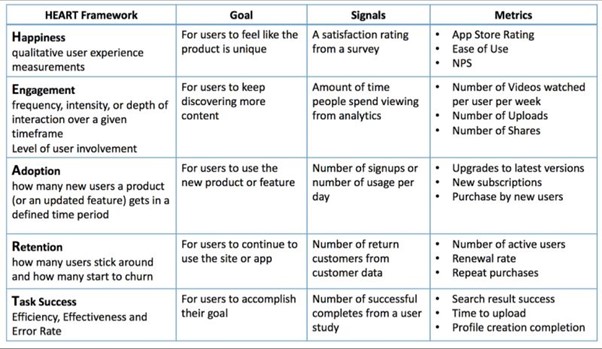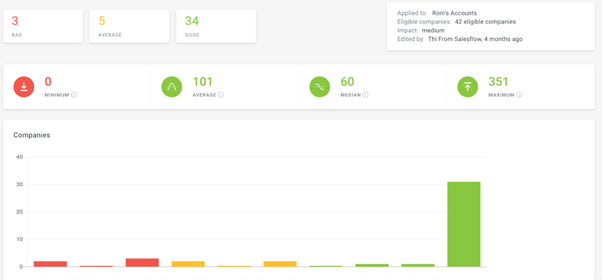

In the constantly evolving landscape of modern business, harnessing the power of marketing technology (MarTech) has become a cornerstone of success. As businesses strive to stay competitive and relevant, CEOs and marketing leaders must embrace innovative MarTech strategies to drive growth and maximise ROI. In this article, Besnik Vrellaku, founder of Salesflow.io reveals five proven MarTech strategies that can fuel business expansion…
AI and Machine Learning for Personalisation
Personalisation has become the holy grail of marketing with AI and machine learning being the driving forces behind its scalability and effectiveness. By leveraging AI-powered tools, businesses can target their audience with precision and deliver tailored marketing messages that resonate with individual preferences and behaviours. For instance, utilising technologies such as Segment can help create detailed customer personas, allowing marketers to craft personalised campaigns that speak directly to their target audience’s needs and interests. Leveraging intent data and applying AI to personalisation the buyer journey via Warmly has seen significant results in the conversion 98% of loss traffic which isn’t converting, with medium 2% conversion rate that exists as an average in B2B.
Automated Multi-Channel Outreach
In today’s interconnected and globalised world, relying on a single marketing channel is no longer sufficient. Instead, businesses must embrace multi-channel outreach strategies to engage prospects across various platforms effectively. Tools such as Salesflow.io can help by offering automated solutions for managing outreach campaigns across platforms such as Linkedin and email, ensuring consistent communication and maximising opportunities for conversion. By streamlining multi-channel automation, businesses can enhance their reach and engagement while optimising their sales pipeline for sustainable growth.
Data Analytics for Decision Making
Data is another important asset of modern marketing, providing valuable insights that drive informed decision-making and strategy development. By implementing robust analytics tools such as Google Analytics or product analytics mixpanel, businesses can gain deeper insights into customer behaviour, campaign performance and revenue attribution. Tracking end-to-end marketing and sales data enables businesses to measure the effectiveness of their efforts accurately and identify areas for improvement. With a data-driven approach, businesses can optimise their marketing initiatives, minimise waste, and maximise returns on investment.
This is nothing new using HEART framework as an example as a guide on metrics for decision-making for modern businesses.

Partnerships and Influencer Engagement
One key mar-tech strategy is leveraging tools such as collaborating with partners and influences. Platforms such as Reveal and PartnerStack facilitate co-marketing and co-selling initiatives, allowing businesses to leverage each other’s resources and networks for mutual benefit. By forging strategic partnerships and engaging influential figures within their industry, businesses can tap into new audiences, build credibility, and drive demand generation. Harnessing the power of partnerships can unlock new opportunities for growth and expand market presence effectively.
This is an example how leveraging marketing technology software such as reveal.co to work with strategic and complimentary solutions which has
- Common customers
- Common opportunities in the pipeline
- Partner customer that are high match ration
- Account overlaps
You are missing out on marketing where CAC is getting more expensive and leveraging partnerships that yield rather than depending on just a webinar activity.
Retention and Expansion Marketing
Retaining and expanding existing customers is just as essential for business growth as acquiring new ones. By prioritising customer experience and engagement, businesses can foster loyalty and drive repeat business. Platforms such as Planhat, Pento or Custify enable businesses to nurture customer relationships effectively, offering personalised interactions and proactive support. By leveraging marketing tactics within customer success platforms, businesses can identify opportunities for upselling and cross-selling, driving revenue growth from their existing customer base.
Here’s an example of both how you define the health scores of your customers and how to automatically place them into the “bad” category to intervene and adjust strategies for your clients and users to ensure health is monitored in real-time. Beyond that, strong utilisation of accounts and usage pauses or stagnation are signals of where you can intervene further. There have been many moments where we had negative net churn, simply because we focused our attention on expansion vs being fully dependent on new business.

In conclusion, embracing MarTech strategies is essential for businesses that want to thrive in today’s competitive landscape. By leveraging AI for personalisation, automating multi-channel outreach, utilising data analytics for decision-making, forging partnerships, and prioritising customer retention, businesses can unlock new avenues for growth and stay ahead of the curve. With the right MarTech tools and strategies in place, CEOs can lead their organisations to greater success and profitability in the digital age.


Technology
25 March 2025
Ransomware-As-A-Service Variants on the Rise With Critical Infrastructure Providers at the Greatest Risk

Business Advice
25 March 2025
Claims Processing Automation: How Insurers Can Cut Costs and Improve CX

Technology
18 March 2025
Secret Signs Your Internet Security Has Been Compromised






















